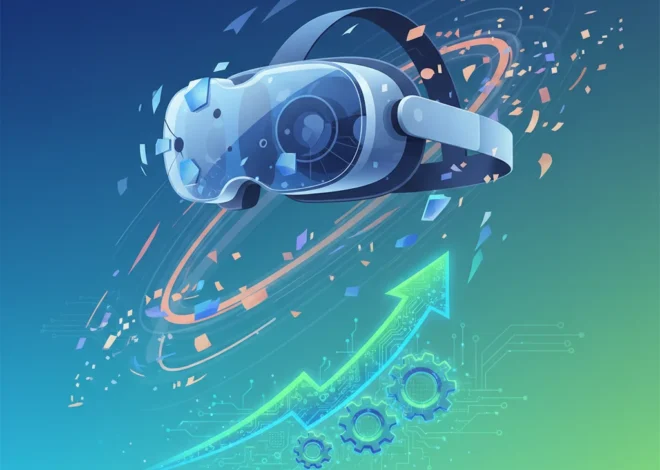
The Teutonic Blunder: Are Germany’s Auto Giants Ignoring Consumers at Their Peril?
The Unshakeable Legacy Meets an Immovable Object
For decades, the words “German engineering” have been a global benchmark for quality, performance, and prestige. Brands like Mercedes-Benz, BMW, and Audi built empires on the promise of mechanical perfection. Their vehicles were, and in many ways still are, marvels of the industrial age. Yet, as a recent, poignant letter to the Financial Times from a consumer in Ireland highlights, this legacy of hardware supremacy may be blinding these titans to a seismic shift in the market. The modern consumer, accustomed to the seamless digital ecosystem of a smartphone, is now sitting in the driver’s seat, and they are finding the experience in these premium vehicles to be frustratingly analogue.
The core of the issue is a fundamental misunderstanding of what a car represents in the 21st century. It is no longer just a machine for transportation; it is a connected, software-defined device on wheels. This transition from mechanical engineering to user experience (UX) design is proving to be a treacherous one for the German auto industry. Their failure to adapt isn’t just an inconvenience for drivers; it’s a flashing red warning light for investors, a major headwind for the German economy, and a case study in corporate inertia that business leaders should watch with extreme caution. The very foundation of their competitive moat is eroding, not from a lack of engineering prowess, but from a deficit of consumer empathy.
When Hardware Excellence Creates a Software Blind Spot
The historical dominance of German automakers was built on tangible, physical attributes: the satisfying thud of a closing door, the precision of the steering, the powerful roar of a finely tuned engine. This culture, perfected over a century, permeates every level of their organizations. The problem is that the new frontier of automotive value creation is intangible. It’s in the code that runs the infotainment system, the algorithm that optimizes battery range, and the over-the-air update that adds new features overnight.
This has led to a series of high-profile and costly missteps:
- Software Stumbles: Volkswagen’s well-documented struggles with its CARIAD software division delayed the launch of key electric models like the Porsche e-Macan and Audi Q6 e-tron. These issues, ranging from buggy interfaces to system crashes, have damaged consumer trust and cost the company billions.
- Subscription Backlash: BMW faced a significant consumer backlash when it attempted to charge a monthly fee for heated seats—a feature for which the hardware was already installed in the car. This move was perceived not as an innovative application of financial technology, but as a greedy and anti-consumer tactic.
- A Lagging EV Experience: While German EVs often boast excellent build quality, their user experience frequently falls short of competitors. Clunky route planning that fails to account for charger availability, slow and confusing interfaces, and a fragmented public charging experience stand in stark contrast to the seamless, integrated ecosystem built by rivals like Tesla.
These are not isolated incidents; they are symptoms of a deep-seated cultural problem. The car is no longer the hero; the user experience is. And in this new paradigm, the German giants are playing catch-up. The Great Disconnect: Analyzing Market Euphoria Amidst Political Turmoil in Trump's First Year
The Stock Market’s Brutal Verdict
For those involved in finance and investing, the most telling metric is often the stock market‘s valuation. Here, the story is stark. Despite selling millions more vehicles, the combined market capitalization of Germany’s legacy automakers is often dwarfed by that of Tesla, a company that is valued as much for its software, AI, and energy solutions as it is for its cars.
Let’s look at a snapshot comparison to understand the scale of this valuation gap. The numbers reflect a fundamental shift in what investors believe will drive future growth and profitability.
| Company | Market Capitalization (USD, Early 2024) | Global BEV Sales (2023) | Implied Value per EV Sold |
|---|---|---|---|
| Tesla | ~$580 Billion (source) | 1.81 Million (source) | ~$320,441 |
| Volkswagen Group | ~$65 Billion | 771,000 | ~$84,306 |
| BMW Group | ~$68 Billion | 376,183 | ~$180,762 |
| Mercedes-Benz Group | ~$75 Billion | 240,668 | ~$311,625 |
This data illustrates that the market is placing a massive premium on companies perceived as tech leaders. The “Implied Value per EV Sold” is a rough but revealing metric: investors are willing to pay far more for each electric vehicle sold by Tesla—and even Mercedes, which is pushing its luxury tech—than for those from the volume-focused Volkswagen Group. This isn’t just about car sales; it’s a reflection of investor confidence in future revenue streams from software, data, and autonomous driving technology. The traditional metrics of economics, like production volume, are becoming less important than the metrics of the digital age, like user engagement and recurring revenue.
Navigating the Road Ahead: A Perilous Pivot
To their credit, German automakers are not standing still. They are pouring tens of billions of euros into software development, building new battery plants, and forging partnerships with tech giants. Volkswagen’s CARIAD, despite its initial troubles, represents a colossal effort to bring software development in-house. Mercedes-Benz is collaborating with Google on navigation and NVIDIA on autonomous driving systems. These are necessary, logical steps.
However, the path is fraught with challenges. The “not invented here” syndrome is a powerful force in these proud engineering firms, often leading them to reinvent the wheel rather than partner effectively. Furthermore, they are attempting this transformation while still managing the slow decline of their immensely profitable internal combustion engine (ICE) business. This dual-front war is a massive drain on capital and focus. The Price of Green: Are EU Climate Rules on a Collision Course with Energy Security?
The integration of advanced fintech solutions for in-car payments, insurance, and other services represents another frontier where a seamless user experience is paramount. Even futuristic technologies like blockchain, which could one day offer transparent supply chain tracking or secure vehicle identity, will mean nothing if the central touchscreen is slow and unintuitive. The foundation of the digital car must be solid before these advanced features can add real value.
The Consumer Is King: A Lesson to Be Relearned
Ultimately, this all comes back to the simple, powerful message in that letter to the editor. The consumer, who is paying a premium for a German car, expects a premium experience in all aspects. That experience is now defined as much by the responsiveness of the screen as the responsiveness of the engine.
For investors, the takeaway is clear: look beyond the badge and the production numbers. Analyze a company’s software strategy, its user interface reviews, and its ability to attract top tech talent. For business leaders in any industry, this is a powerful lesson in the dangers of allowing a legacy of success to obscure a clear view of the future. The German auto industry is at a crossroads. The technical skill to build the car of the future is undoubtedly there. The question is whether they have the humility and the vision to design it for the consumer of today. Ignoring them, as Liam Pluck of Enniskerry Village pointed out, is a shortcut to peril. The £3 Million Glitch: How a Government Algorithm Mistook Family Holidays for Permanent Exits
The world of automotive trading and investment will be shaped not by who builds the best engine, but by who builds the best user-centric, connected experience. The German giants have the resources to compete, but they are running out of time to change course.


